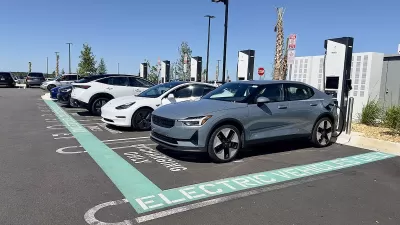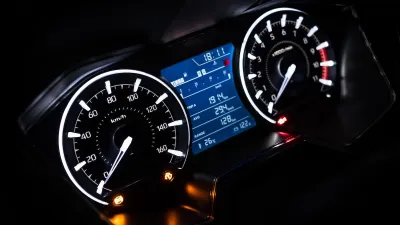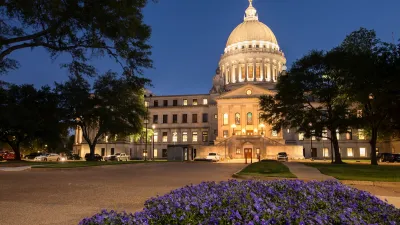In Massachusetts, transportation funding is one of the key issues to be addressed by the state legislature this year. James Aloisi, former Transportation Secretary, offers an inventive way to fund Transit Improvement Districts.
The primary source of transportation funding in Massachusetts is a 19-cent gas tax that has been unchanged since 1993. Governor Patrick Deval Patrick attempted to increase that tax in 2009, but the legislature opted to use increased sales tax revenue to fund transit and roads when those attempts failed.
The current funding is insufficient to address the state's transportation needs, and to make up the gap, Aloisi has proposed what he calls a "carbon impact parking assessment." The assessment is envisioned as a tax on nonresidential parking lots and garages with more than 20 spaces that are located within the district of the Massachusetts Bay Transportation Authority. Revenue from the parking tax would be directed towards improving the public transportation system and bike and pedestrian pathways.
"Parking taxes are not unusual in major cities," says Ryan Holeywell, "but at times, they have been politically unpopular." Such plans have resulted in political strife, such as when the University of Scranton sued its namesake city over a new parking tax and when Chicago residents objected to the $2-per-day "congestion fee" implemented by Mayor Rahm Emanuel.
"Aloisi says the plan would mitigate the environmental impact of automobiles while providing funding for other modes of transportation and ensuring that funding remains locally controlled."
FULL STORY: Should Parking Be Taxed to Fund Bike Paths?

Planetizen Federal Action Tracker
A weekly monitor of how Trump’s orders and actions are impacting planners and planning in America.

Maui's Vacation Rental Debate Turns Ugly
Verbal attacks, misinformation campaigns and fistfights plague a high-stakes debate to convert thousands of vacation rentals into long-term housing.

Restaurant Patios Were a Pandemic Win — Why Were They so Hard to Keep?
Social distancing requirements and changes in travel patterns prompted cities to pilot new uses for street and sidewalk space. Then it got complicated.

In California Battle of Housing vs. Environment, Housing Just Won
A new state law significantly limits the power of CEQA, an environmental review law that served as a powerful tool for blocking new development.

Boulder Eliminates Parking Minimums Citywide
Officials estimate the cost of building a single underground parking space at up to $100,000.

Orange County, Florida Adopts Largest US “Sprawl Repair” Code
The ‘Orange Code’ seeks to rectify decades of sprawl-inducing, car-oriented development.
Urban Design for Planners 1: Software Tools
This six-course series explores essential urban design concepts using open source software and equips planners with the tools they need to participate fully in the urban design process.
Planning for Universal Design
Learn the tools for implementing Universal Design in planning regulations.
Heyer Gruel & Associates PA
JM Goldson LLC
Custer County Colorado
City of Camden Redevelopment Agency
City of Astoria
Transportation Research & Education Center (TREC) at Portland State University
Jefferson Parish Government
Camden Redevelopment Agency
City of Claremont





























